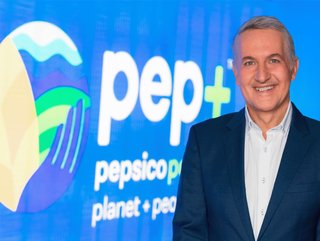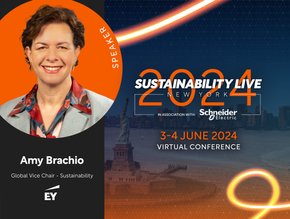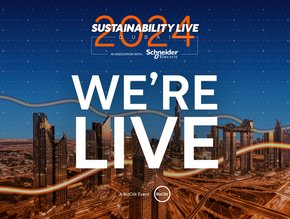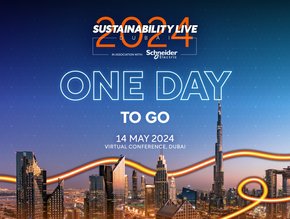How Does PepsiCo Deliver Positive Sustainability Impacts?

PepsiCo Positive (or pep+) is the food and beverage giant’s end-to-end sustainability transformation that impacts the entire business – from sourcing to selling.
While pep+ is having a significant impact on operations, it’s important to remember that PepsiCo has been on the sustainability transformation journey since 2006, with a mission to deliver strong financial returns while also caring for the planet.
Back then, Performance with Purpose began to integrate sustainability into daily business operations. In 2010, the first all-electric delivery trucks hit the road, and in 2013 the Sustainable Farming Programme was launched, which now sees 90% of grower-sourced crops being sustainably sourced. In 2021, the company set a net zero target for 2040.
Despite this progress, the next-generation pep+ launched in 2021 has been described by Chairman and CEO Ramon Laguarta as “the future of our company”, and is built on three pillars:
- Positive Agriculture – sustainably sourcing ingredients and improving agricultural practices and farmer livelihoods
- Positive Value Chain – helping to build a circular and inclusive value chain
- Positive Choices – evolving the company’s food and beverages so they are better for people and planet
PepsiCo’s latest 2022 Environmental, Social, and Governance (ESG) Summary shared the results of the first full year of reporting since the pep+ launch, and highlights the progress that has been achieved.
PepsiCo reported positive outcomes on nutrition, agriculture, social, water usage and safe water access, while reducing emissions and use of virgin plastics.
For example, carbon emissions from agriculture were reduced by 330,000 metric tons (the equivalent of taking 73,000 cars off the road for a year). Safe water access was provided to a further 12 million people in 2022, taking the total to 80 million since 2006.
“Decoupling our business growth from our resource use is always going to be difficult but meeting our long-term targets is critical and we are rapidly learning how and where we need to adjust,” said Jim Andrew, Chief Sustainability Officer at PepsiCo.
“We issued US$2.25 billion in green bonds since 2019, and we have made – and will continue to make – substantial investments toward key parts of our pep+ agenda, including becoming net zero and reducing the use of virgin plastics.”
In 2022, PepsiCo created Pep+ REnew with Schneider Electric to help suppliers adopt renewable electricity and reduce their carbon footprints.
“The creation of pep+ REnew directly supports our ambitious goal to achieve net-zero emissions across our value chain by 2040,” says Andrew. “Net zero cannot happen without our value chain partners taking bold climate action.”

PepsiCo’s Positive Agriculture projects
When it comes to Positive Agriculture, PepsiCo recently backed eight new innovation projects in Australia, Colombia, Egypt, India, Iraq, Pakistan, Poland, Romania, and the UK with a US$30 million investment.
The Positive Agriculture Outcomes (PAO) Accelerator offers farming communities investment to accelerate diverse and results-driven projects, as well as funding for agritech startups.
“We can't motivate systemic change on our own, and our PAO Accelerator continues to provide a forum for farming communities to bring forth ideas and opportunities, and receive the funding needed to get promising innovation off the ground,” said Margaret Henry, Vice President, Sustainable and Regenerative Agriculture at PepsiCo.
“With this latest round of projects, we're not only fostering this powerful network of innovators across global farmland, but growing closer to achieving a more regenerative future, with farmers' insight at the forefront.”
PepsiCo's goal is to spread regenerative farming practices across 7 million acres by 2030, improve the livelihoods of 250,000 people in its agricultural supply chain, and sustainably source 100% of its key ingredients.
Diverse projects supported by the PAO Accelerator include adopting efficient irrigation systems in response to increased drought, developing kilns to turn agricultural waste into fertiliser, and improving soil health.
The projects backed in 2023 include Australian grain growers using soil health management to help reduce greenhouse gas emissions on-farm. In Colombia, potato crop quality and yield will be increased while also reducing water use.
Marginal gains can make all the difference when you consider that more than a billion PepsiCo products (including iconic brands like Pepsi-Cola, Doritos, and Quaker) are consumed every day in more than 200 countries, which generated more than US$86 billion in revenue in 2022.







